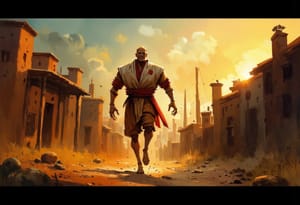| Series | Gospel of Luke (4) |
|---|---|
| Theme | 1. Our priorities - 1. O A TATOU FAAMUAMUA |
| Colour | Lanu Efuefu |
| Special Day | Su’ega Ulufale Malua |
Scripture Focus: Luka 15:11-32
He said, “A certain man had two sons. The younger of them said to his father, ‘Father, give me my share of your property.’ He divided his livelihood between them. Not many days after, the younger son gathered all of this together and traveled into a far country. There he wasted his property with riotous living. When he had spent all of it, there arose a severe famine in that country, and he began to be in need. He went and joined himself to one of the citizens of that country, and he sent him into his fields to feed pigs. He wanted to fill his belly with the husks that the pigs ate, but no one gave him any. But when he came to himself he said, ‘How many hired servants of my father’s have bread enough to spare, and I’m dying with hunger! I will get up and go to my father, and will tell him, “Father, I have sinned against heaven, and in your sight. I am no more worthy to be called your son. Make me as one of your hired servants.”’ “He arose, and came to his father. But while he was still far off, his father saw him, and was moved with compassion, and ran, and fell on his neck, and kissed him. The son said to him, ‘Father, I have sinned against heaven, and in your sight. I am no longer worthy to be called your son.’ “But the father said to his servants, ‘Bring out the best robe, and put it on him. Put a ring on his hand, and shoes on his feet. Bring the fattened calf, kill it, and let us eat, and celebrate; for this, my son, was dead, and is alive again. He was lost, and is found.’ They began to celebrate. “Now his elder son was in the field. As he came near to the house, he heard music and dancing. He called one of the servants to him, and asked what was going on. He said to him, ‘Your brother has come, and your father has killed the fattened calf, because he has received him back safe and healthy.’ But he was angry, and would not go in. Therefore his father came out, and begged him. But he answered his father, ‘Behold, these many years I have served you, and I never disobeyed a commandment of yours, but you never gave me a goat, that I might celebrate with my friends. But when this, your son, came, who has devoured your living with prostitutes, you killed the fattened calf for him.’ “He said to him, ‘Son, you are always with me, and all that is mine is yours. But it was appropriate to celebrate and be glad, for this, your brother, was dead, and is alive again. He was lost, and is found.’”
- Luke 15:11-32 (WEB)
Study:
This passage from the Gospel of Luke tells the well-known parable of the Prodigal Son, illustrating themes of repentance, forgiveness, and God’s boundless grace. The younger son demands his inheritance prematurely, symbolizing a rejection of his father’s authority and a desire for self-indulgent independence. His journey into a distant country, where he wastes his wealth on reckless living, represents the consequences of turning away from God’s provision.
When famine arises and his resources are depleted, the son finds himself in desperation, feeding pigs and longing even for their food, highlighting the depth of his fall and alienation. His moment of repentance, where he ‘comes to himself’ and decides to return home, marks a turning point — a humble recognition of sin and unworthiness.
The father’s reaction is a powerful picture of God’s mercy: he runs to embrace the son, fully restores him with a robe, ring, and celebration, and calls him ‘alive again.’ This shows the joy in heaven over one sinner who repents. The elder son’s anger reflects the human struggle with jealousy, self-righteousness, and a lack of forgiveness, which the father patiently addresses by affirming his constant presence and inviting him to join the celebration.
Application:
This parable remains deeply relevant today. Like the younger son, we may at times stray from God’s path, making poor choices that lead to emptiness and suffering. Yet, despite our failures, God invites us back with open arms, eager to restore and forgive us. It encourages us to acknowledge our wrongs honestly and seek reconciliation.
Moreover, the story challenges us not only to accept God’s forgiveness but also to extend it to others. The elder son’s attitude warns us against bitterness and self-righteousness. We are called to celebrate the restoration of those who repent and to rejoice in God’s mercy instead of harboring resentment.
Reflection Questions:
- Have I ever experienced a time of 'coming to myself' and renewal in my walk with God?
- What are some ways I resist God’s forgiveness or struggle to forgive others?
- How can I better reflect the father’s compassion and joy in welcoming lost people back?
- Am I more like the younger son seeking freedom apart from God or the elder son resisting God’s grace extended to others?
- In what ways can I celebrate and encourage repentance and restoration in my community?
Prayer:
Heavenly Father, thank You for Your unfailing love and mercy. When we stray, help us to recognize our need for You and return to Your embrace. Teach us to forgive as You forgive and to rejoice when lost ones are found. Renew our hearts, that we may live in Your grace and extend it to all. In Jesus’ name, Amen.
Tags: prodigal son, Luke 15, forgiveness, repentance, God’s grace, parables, Bible study, Christian reflection, mercy, restoration, faith journey, gospel of Luke
